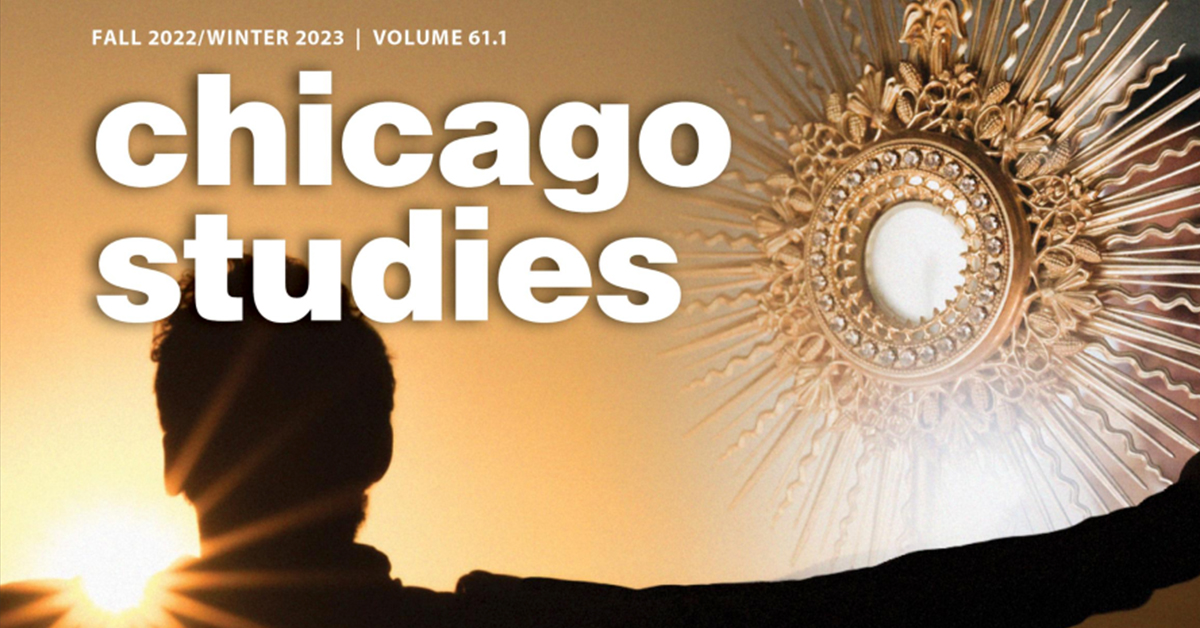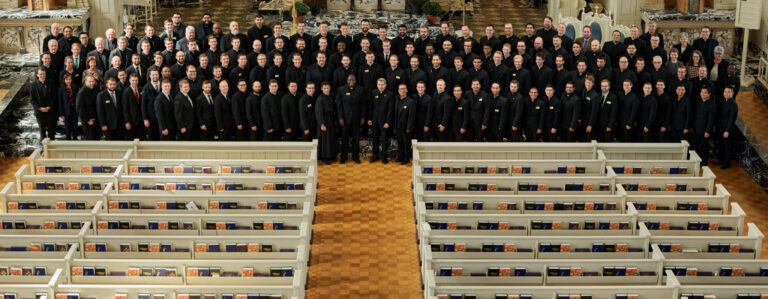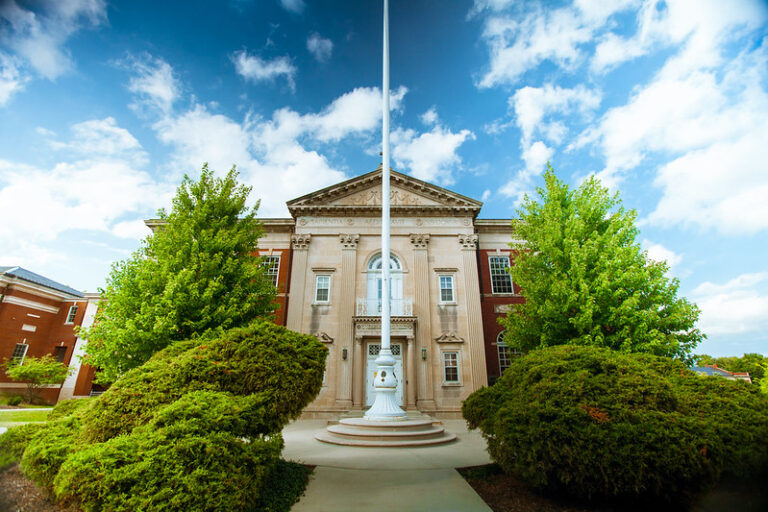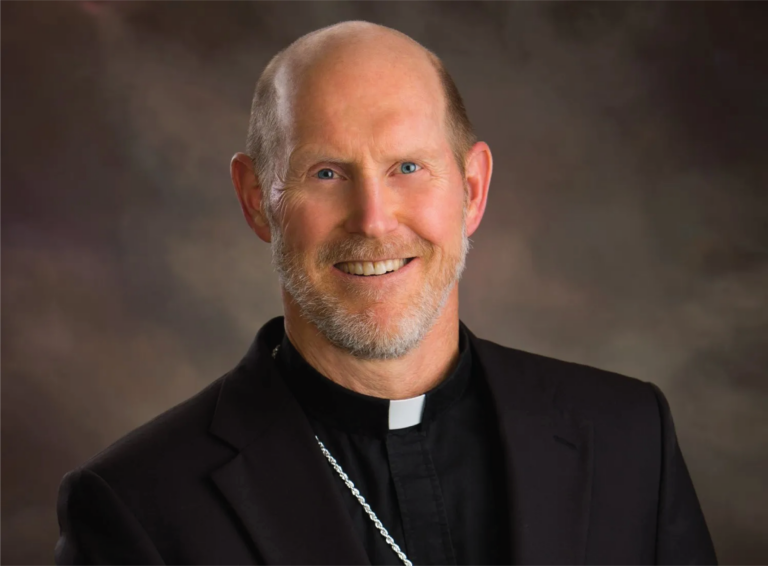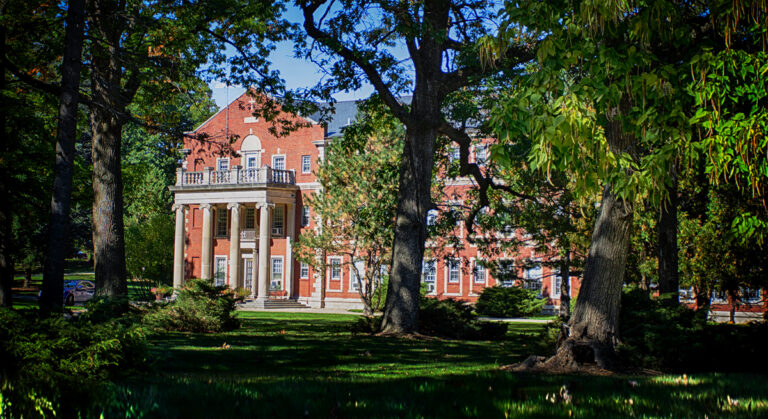Chicago Studies Appoints New Editor
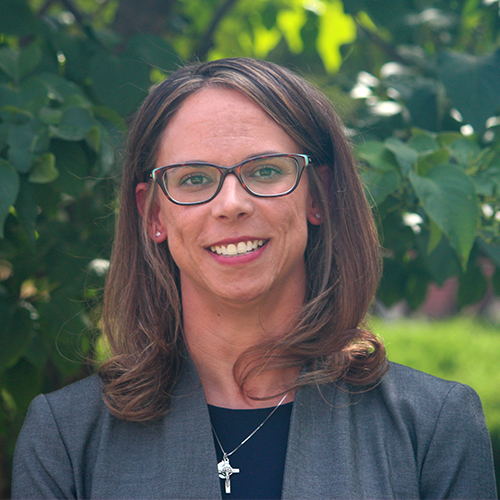
Interview with Juliana Vazquez, new Editor of Chicago Studies
1. Could you briefly introduce what Chicago Studies is and its significance in the realm of theological journals?
Chicago Studies is a peer-reviewed, digital journal of pastoral theology whose mission always has been to bridge the gap between the academy and the parish. We provide a space where rigorous theological scholarship meets the demands of parish ministry. Chicago Studies explores contemporary issues in parish ministry from a variety of critical theological lenses. We welcome faithful and creative essays in pastoral, spiritual, historical, dogmatic, and moral theology, and we also hope to further ecumenical and interreligious dialogue. Our contributors bring the riches of high-quality theological reflection to bear on the concerns and questions encountered in parish leadership, ministry, and evangelization today as we strive to transform our lives and culture according to the heart of Christ.
2. Chicago Studies has a rich history spanning over fifty years. Could you share a bit about the journal’s origins and its evolution through the years?
Chicago Studies was founded in 1962 by Fr. George Dyer (d. 2017), a priest of the Archdiocese of Chicago who served at various times as lecturer, librarian, dean, and professor of theology at Mundelein Seminary. It is significant that the very first issue of the journal dates from the spring of 1962, since the journal was originally founded as a scholarly venue for embracing the vision for the Church set out by the Second Vatican Council, which opened just a few months later. Fr. Martin Zielinski, Fr. Lawrence Hennessey, and Fr. Michael Fuller subsequently did wonderful work building the journal into the forum of studied and practical theological conversation that it is today. Before he left to work at the USCCB around 2016, Fr. Michael Fuller, S.T.D., served as editor for a number of years while also being an Associate Professor and Chair in the Department of Spiritual Theology at Mundelein Seminary. Fr. Lawrence Hennessey, Ph.D., who is now Professor Emeritus in the Department of Dogmatic Theology, served Mundelein Seminary in a variety of roles and also provided the journal roughly eight years of leadership as editor from 2004 to 2012, when Fr. Michael Fuller began writing the Editor’s Corner. Fr. Hennessey then continued on as assisting editor until 2017, when the editorial board expanded. Fr. Martin Zielinski, Ph.D., who sadly passed away this summer, also made invaluable contributions to the journal as managing editor while simultaneously being an Associate Professor in the Department of Church History at Mundelein Seminary. Fr. Zielinski is honored in the current issue, which features the funeral homily given by Fr. Lawrence Hennessey, his close friend and former colleague. Another priest faculty member of the Seminary who played a key role in the development and direction of the journal was Fr. Thomas Baima, S.T.D., who died in 2022. He served a number of years on the editorial board, contributed work of his own, and often authored the Editor’s Corner of the journal.
3. As you step into the role of editor, can you provide a brief overview of your background and how your expertise aligns with the vision of the journal?
I have a B.A. from Thomas Aquinas College in southern California. It was a great books program and gave me a fantastic foundation in the liberal arts and daily practice in the close reading of challenging philosophical and theological texts, particularly those of Aquinas. My M.A. and Ph.D. are from Marquette University, where I studied systematic theology and became acquainted with the thought of Balthasar, Lonergan, and Rahner, which helped fill in the wider picture of twentieth century theology for me. It is an honor to take on this new role at Chicago Studies during a time when there’s a critical need for those involved in parish leadership and evangelization to stay steeped in the teachings of the Church in a way that empowers them to minister the heart of Christ to others. Providing high-quality theological scholarship that can be easily integrated into ministry is a way to serve that need, and a great opportunity to build upon the excellent pioneering work of Fr. Martin Zielinski, Fr. Lawrence Hennessey, and Fr. Michael Fuller. Dr. Melanie Barrett and Fr. Zielinski worked together as coeditors for several years. Dr. Barrett has been a phenomenal mentor to me as I ease into the new position. She will remain on the editorial board, and recently we have brought on several professors to help us with vetting, solicitation of articles, and, hopefully, the integration of new goals into the mission of the journal as Chicago Studies continues to grow.
4. The journal is dedicated to serving those in parish ministry. How does Chicago Studies strike a balance between scholarly content and practical applicability for ministers?
All of the articles that we receive are peer-reviewed and must have enough scholarly acumen to illuminate whatever topic is at hand. Our aim is to provide pieces that are intellectually accessible to those who have basic familiarity with Catholic tradition, but to avoid overly specialized language and excessive technicalities. Our journal is rooted in the Roman Catholic tradition and responsive to the contemporary joys and challenges of serving Christ and His Church. Furthermore, because the Gospel is meant to transform every aspect of our lives, many theological issues are inherently pastoral. Many of the Meyer and Paluch Lectures that we’ve published or will publish have reflected that connection. For example, Bishop Barron’s two Meyer Lectures from 2022, which are featured in the current issue, speak directly about how the Church can reach those who are religiously unaffiliated. He analyzes the spiritual de-centering of the self that always occurs when we love someone, learn something new, make a moral judgment, or appreciate a beautiful work of art. These are experiences that we all share as human beings and that can become powerful openings for grace. In Monsignor Milam Joseph’s Meyer Lectures given in March of 2023, which will be published next year, he shares the wisdom of six decades of priesthood, including the time he spent advocating for immigrant children to receive a free public education in Tyler, Texas. While sharing this remarkable story in his public lectures, he encouraged the seminarians present to trust themselves and their love for the Church, to be open to new conversations, and to make the concerns of their future parishioners front and center.
5. The list of authors who have contributed to Chicago Studies is truly impressive. Could you highlight some notable names?
Some of the significant voices that we’ve featured in the past include Jean Danielou, Hans Urs von Balthasar, Avery Dulles, and Yves Congar, and more recent leading voices include Matthew Levering, Kevin Irwin, Angela Franks, Elisabeth Kincaid, Elizabeth Sung, Sr. Sara Butler, Sr. Agnes Cunningham, N.T. Wright, David Fagerberg, and Bishop Barron.
6. Over the years, Chicago Studies has navigated various pastoral challenges. How has the journal consistently met the evolving needs of priests, deacons, and other ministers?
Over the years, we have had many excellent theologians, both clerical and lay, contribute articles, but going forward we hope to highlight the voices of more lay ecclesial ministers as the Church continues to encourage those roles. We also plan to invite new reflections in pastoral theology on important issues not yet treated: for example, how to accompany married couples who are struggling; how to pastorally counsel those who are suffering abuse; how to receive criticism from parishioners in a constructive manner; how to improve the relationship between a bishop and his priests; and how lay ecclesial ministers and the clergy can handle parish conflict collaboratively. To better reflect the formational needs and ministerial concerns of those who are building up the body of Christ on a daily basis, we need to listen to those voices in particular.
7. Cardinal Meyer emphasized the importance of continuous study for effective ministerial work. How does Chicago Studies continue to fulfill this imperative in today’s context?
I think that Cardinal Meyer accurately described the intersection of the riches of Catholicism with the challenges of the modern world when he wrote on the first page of the very first issue of Chicago Studies, published in the spring of 1962, that “study has never been more difficult for the priest, nor more necessary, than it is at the present moment; and the more pressing the demands made upon his time and energy the more imperative becomes his need to study. The reason for this is to be found in the nature of the Church itself. The Church is not monolithic and immobile but dynamic, continuously assimilating into itself new elements of a changing world.” Certainly this observation applies to everyone involved in parish leadership and evangelization today. Consequently, we aim to offer ongoing intellectual formation to all those who want to learn more about the faith and grow in their ministry, from priests and deacons to lay ecclesial ministers, including directors of religious education, pastoral associates, chaplains, educators, and beyond. Given the current fracturing and polarization within our society and even within our Church, we must restore a genuine reverence for the mysteries of the faith and their power to transform our minds in the ongoing study of theology and the practice of Christian discipleship. We will especially prioritize contributions that are written in an accessible manner and cover pastorally relevant topics. The ultimate goal is for all of us to learn from each other’s diverse ministry experiences within the body of Christ.
8. Evangelization is a prominent theme in the present-day Church. How does the journal intend to explore and illuminate Church teachings within the framework of Pope Francis’s ongoing emphasis on the importance of helping each other, as well as the larger culture, to encounter Jesus anew?
People read Chicago Studies because they have a longing to participate in the life of the mind, to grow in their practice of the faith, to bring the two together, and to share their deepened knowledge and love of God with others. They also desire to learn about other people’s authentic religious experiences. The giving and receiving aspects of evangelization help encourage a “listening Church” who will share the good news of the Gospel effectively. Chicago Studies endeavors to equip people in various pastoral settings to live as disciples of Christ with deeper impact.
9. Looking ahead, what exciting developments can readers anticipate as you guide Chicago Studies into the future? How do you envision the journal’s role in shaping theological discourse for years to come?
Our five-year goal is to increase our readership, include more pastorally oriented themes, and incorporate a broader range of expertise. We also hope to update our archives so that all previous issues are electronically accessible.
___
Read the latest edition of Chicago Studies, containing articles authored by Bishop Robert Barron, by clicking here.

